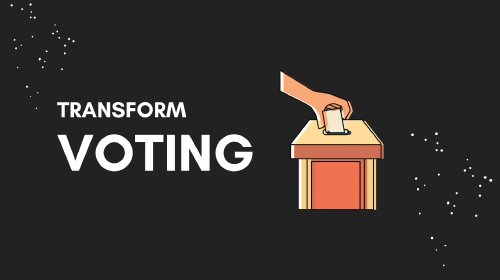Why Data Privacy is a Cybersecurity Issue
Salomon Kisters
Jun 16, 2023This post may contain affiliate links. If you use these links to buy something we may earn a commission. Thanks!
Data privacy and cybersecurity are two sides of the same coin. While data privacy refers to the protection of personal information from unauthorized access, cybersecurity focuses on the protection of computer systems from theft or damage to their software, hardware, or electronic data. In today’s digital world where every aspect of our lives is connected to the internet, ensuring both data privacy and cybersecurity has become more critical than ever before.
With the rise of online transactions, social media, and cloud computing, personal and sensitive data is being shared, stored, and transferred over an increasing number of networks. While this connectivity offers unprecedented convenience, it also creates new security risks that hackers and cybercriminals can exploit. Data breaches, identity theft, and ransomware attacks are just a few of the threats that can compromise our data privacy and cybersecurity.
This blog post will explore the importance of data privacy from a cybersecurity perspective. We will discuss the risks associated with data breaches, the impact of cyberattacks on personal and corporate data, and the steps that individuals and organizations can take to protect their data. By the end of this post, you will have a better understanding of why data privacy is not just a privacy issue but also a critical component of a robust cybersecurity strategy.
The Relationship Between Data Privacy and Cybersecurity
Data privacy and cybersecurity are often used interchangeably, but there are subtle differences between the two concepts. Cybersecurity refers to the measures taken to protect computer systems and networks from unauthorized access, theft, or damage. On the other hand, data privacy is concerned with protecting personal information from breaches, unlawful use, and unauthorized tracking.
However, these two concepts are closely intertwined. Cybersecurity is critical in maintaining good data privacy practices. When a computer system is compromised, it can lead to a breach of personal data, making individuals vulnerable to identity theft and other cybercrimes. Similarly, data breaches can lead to attacks on computer systems and networks, which can disrupt operations, compromise sensitive information, and lead to financial and reputational damages to the affected organizations.
The interdependence between data privacy and cybersecurity means that it is essential to have a comprehensive approach to their management. Ensuring data privacy without implementing strong cybersecurity measures is like locking the doors of a house but leaving windows open. The risk of burglary is still present. Similarly, implementing cybersecurity without considering data privacy may result in protecting systems but failing to safeguard personal information.
How Poor Data Privacy Can Lead to Security Breaches
Data breaches have become a growing concern for individuals and organizations alike. In today’s digital age, personal information has become a valuable commodity, and cybercriminals are always on the lookout for ways to gain unauthorized access to it. Poor data privacy practices can lead to security breaches in many ways.
Firstly, poor data privacy practices can make personal data more vulnerable to cyberattacks. Hackers can exploit weak security protocols, unprotected data storage, and unsecured communication channels to gain access to sensitive information. A single data breach can lead to stolen identities, financial losses, and reputational damages for individuals and organizations.
Secondly, poor data privacy practices can also result in inadvertent data leaks through human error. Employees may accidentally share sensitive information through email, messaging apps, or social media, putting personal data at risk of being accessed by unauthorized personnel.
Thirdly, inadequate data privacy policies can also make it difficult for organizations to comply with data protection regulations. Non-compliance with data protection laws can result in hefty fines and legal liabilities for businesses.
Finally, poor data privacy practices can also impact customer trust and loyalty. Customers who perceive their personal data as not being adequately protected may lose faith in a business’s ability to safeguard sensitive information, leading to reduced patronage and reputation damages.
In light of these risks, it is critical to implement robust data privacy practices to protect sensitive information from cyberattacks. These practices include data encryption, secure communication channels, access controls, and employee training and awareness programs. By incorporating these measures, individuals and organizations can reduce the risks of data breaches and safeguard personal information.
The Impact of Cybersecurity Breaches on Organizations and Individuals
Data breaches can have severe consequences for both individuals and organizations. For individuals, the consequences can range from financial loss to a compromised digital identity, while organizations may suffer reputational damage or loss of business.
Individuals who fall victim to a data breach may experience identity theft, unauthorized purchases, or even financial ruin. Hackers can use this information to create bogus credit lines or access personal bank accounts, leaving individuals to pick up the pieces. Additionally, individuals may experience difficulty obtaining loans, mortgages, or even finding employment due to their compromised data.
Businesses are also at risk of losing millions of dollars in the wake of a data breach. They may suffer reputational damage, loss of customers, and legal penalties. In a world where data breaches are becoming more frequent and profitable for hackers, a single breach can destroy a company’s reputation and put it out of business.
Moreover, businesses that operate in regulated industries may face stiff penalties from government agencies for failing to protect sensitive data. In the United States, for instance, HIPAA fines can cost healthcare organizations up to $50,000 per violation, with no maximum limit on the number of violations.
As a result, organizations must prioritize data privacy and cybersecurity to avoid the potentially catastrophic consequences of data breaches. By adopting best practices such as encryption, access controls, and employee training, organizations can reduce the likelihood of suffering a data breach. Additionally, they can build trust with customers and stakeholders by demonstrating a commitment to data privacy and security.
The Legal and Ethical Implications of Failing to Protect Data Privacy
Failing to protect data privacy can have severe legal and ethical implications. In many countries, laws and regulations require organizations to take specific measures to protect personal and sensitive data. Companies that fail to comply with these regulations may face hefty fines or legal action from government agencies or affected individuals.
Moreover, a breach of data privacy can have serious ethical implications. When a company fails to protect sensitive data, it can be seen as a violation of an individual’s rights and a breach of trust. Customers, employees, and other stakeholders may lose faith in the company’s ability to protect their information, leading to reputational damage and loss of business.
In some cases, a breach of data privacy can also have broader social implications. For instance, a data breach that compromises sensitive medical data can have serious consequences for affected individuals and their families. It can also have broader implications for public health and safety if the data is related to infectious diseases or other public health concerns.
Best Practices for Ensuring Data Privacy in Cybersecurity
In today’s digital world, protecting data privacy is an essential aspect of cybersecurity. Organizations must implement best practices to ensure that sensitive data is secure from unauthorized access, theft, or unintentional disclosure. Here are some best practices that organizations can adopt to ensure data privacy in cybersecurity:
Conduct Regular Risk Assessments: Regular risk assessments can help organizations to identify potential vulnerabilities and risks to their data. This will help them to develop appropriate measures to mitigate these risks.
Implement Strong Authentication and Access Controls: Organizations must implement strong authentication and access control measures to ensure that only authorized personnel have access to sensitive data. This helps to prevent unauthorized access or theft of data.
Encrypt Sensitive Data: Encryption is an effective method of protecting sensitive data. Organizations must implement encryption for sensitive data both at rest and in transit.
Develop and Enforce Data Handling Policies: Organizations must develop data handling policies that outline the processes of collecting, storing, and sharing sensitive data. These policies must be enforced to ensure that employees and third-party contractors are aware of their responsibilities in handling sensitive data.
Keep Software and Systems Up-to-Date: Outdated software and systems can pose a security risk to sensitive data. Organizations must ensure that their software and systems are updated regularly to patch any vulnerabilities.
With these best practices, organizations can ensure that their sensitive data is secure and protected from unauthorized access or disclosure. It also helps to build trust with their stakeholders by demonstrating their commitment to data privacy and cybersecurity.
Conclusion
In today’s digital landscape, data privacy has become one of the fundamental pillars of cybersecurity. Cyber attacks and data breaches have become a common occurrence, and organizations must take a more proactive stance to protect their sensitive data. By implementing best practices such as conducting regular risk assessments, implementing strong authentication and access controls, and developing data handling policies, organizations can safeguard their sensitive data from theft and unauthorized access.
Encryption of sensitive data both at rest and in transit is another effective method that organizations can use to protect their data. Keeping software and systems updated is equally crucial to protect against vulnerabilities that can be exploited by cybercriminals to gain access to sensitive data.
The importance of data privacy in cybersecurity cannot be overstated. Organizations that fail to take the necessary measures to protect their sensitive data risk severe financial and reputational harm. Adoption of best practices for ensuring data privacy will not only protect organizations from data breaches and cyber attacks but will also build trust with their stakeholders by demonstrating their commitment to data privacy and cybersecurity.
Stay informed with the latest insights in Crypto, Blockchain, and Cyber-Security! Subscribe to our newsletter now to receive exclusive updates, expert analyses, and current developments directly to your inbox. Don't miss the opportunity to expand your knowledge and stay up-to-date.
Love what you're reading? Subscribe for top stories in Crypto, Blockchain, and Cyber-Security. Stay informed with exclusive updates.
Please note that the Content may have been generated with the Help of AI. The editorial content of OriginStamp AG does not constitute a recommendation for investment or purchase advice. In principle, an investment can also lead to a total loss. Therefore, please seek advice before making an investment decision.

Bitcoin Cash: Creation, Features, and Adoption
Bitcoin Cash was created in 2017 as a result of a hard fork of Bitcoin to increase block size for faster transactions and lower fees, becoming a popular cryptocurrency.

Benefits of Digital Payments for Local Businesses - Convenience, Security, and More
Discover the benefits of digital payments for local businesses, including convenience, security, cost savings, and customer data access. Learn why adopting digital payments is crucial for success.

How Blockchain Voting Systems Transform the Way We Vote
Guaranteeing secure and transparent elections nowadays is almost impossible. Find out how Blockchain Voting Systems can make the voting process more transparent
Protect your documents
Your gateway to unforgeable data. Imprint the authenticity of your information with our blockchain timestamp